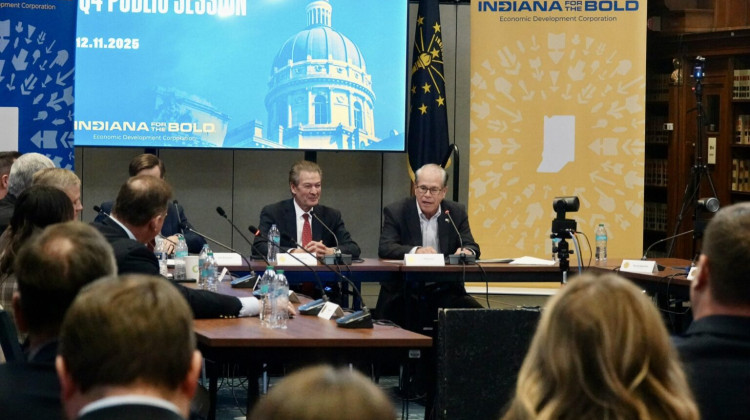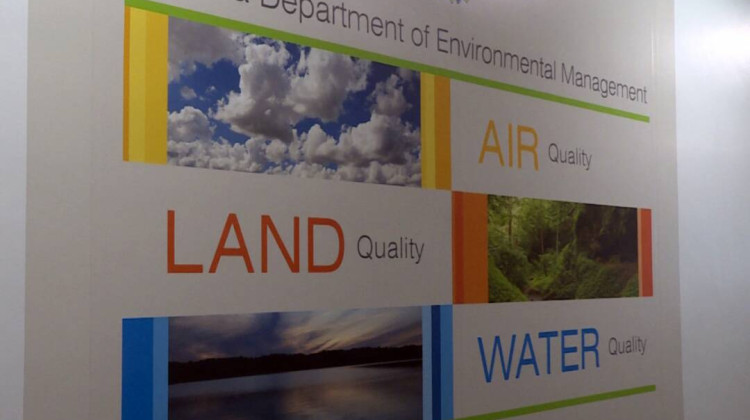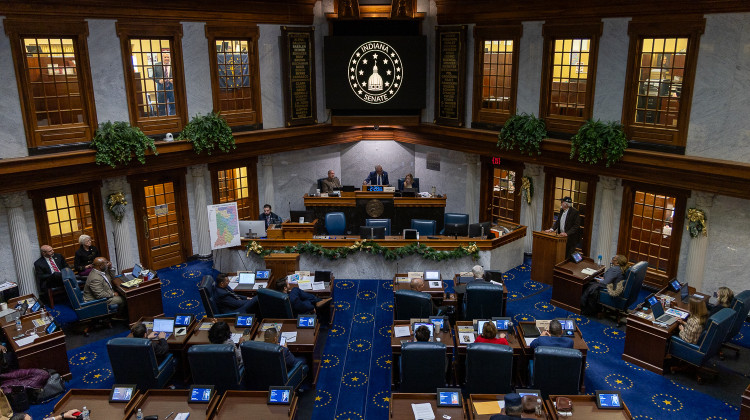INDIANAPOLIS -- With downtown Indianapolis’ development and success a major focus of previous mayors, this year’s candidates are turning their attention to the city’s other corners.
Joe Hogsett calls it his corollary to the Hudnut doctrine. Former Mayor Bill Hudnut often said "you can’t be a suburb of nothing" and he focused on downtown Indy’s development. Now Democratic candidate for mayor Hogsett says "you can’t be a downtown of nothing."
By that, he says attention must now be paid to making neighborhoods around the city center strong and attractive places to live. He would start by helping every residential area write a quality of life plan.
"Many neighborhoods throughout the community have really improved exponentially by implementing a quality of life plan that they have taken a considerable amount of time, energy and effort to create," Hogsett said.
He’s also proposed opening “mini city halls” to bring services out of downtown. City employees would be stationed at community centers or government buildings to issue permits or offer other city services.
And Hogsett would overhaul the neighborhood liaison position within his administration. Hogsett also wants to take on vacant and abandoned housing. Indianapolis has a land bank that works to get such properties back on the tax rolls. But Hogsett says he’d create a comprehensive inventory of boarded-up homes.
"Unsafe housing, abandoned housing, holds back economic development and plagues neighborhoods. It obviously contributes to criminal activity," he said in an interview.
Hogsett stepped down as a federal prosecutor last year to run for mayor. He was also Indiana Secretary of State in the early 90s. His Republican opponent is Chuck Brewer – a political newcomer who owns two downtown restaurants after serving as a U.S. Marine. Hogsett and Brewer are running to replace Mayor Greg Ballard, who is not seeking re-election after two terms. The election is Nov. 3.
Brewer has also acknowledged that downtown Indy is doing fine and that it’s time to look outward. He’s proposed designating economic development corridors, pushing for development along major arteries like Keystone Ave., Michigan Road and Washington Street.
"Corridor development is absolutely essential to growing and sustaining our neighborhoods. Studies show that attractive corridors drive retail traffic," Brewer said. "And retail traffic drives up property assessments, which in turn results in greater tax revenue and fuels neighborhood reinvestment."
The Republican also wants to take what was a successful way to build up downtown and use it in struggling neighborhoods. He says he’d seek state approval to create urban grocery store development zones to alleviate food deserts.
"If you don’t have a car or other reliable transportation your neighborhood grocery becomes wherever your two feet will take you," said Brewer. "And if you live in a food desert, often your two feet will only take you to a convenience store or a gas station."
Tax dollars from existing neighborhood businesses in designated areas would be used to attract a grocery store. That model of reinvesting tax dollars was used to build up blocks around downtown sports stadiums with bars and restaurants.
Hogsett says there’s no easy way to solve food deserts and it will take long-term solutions. Indianapolis scores poorly for walkability and its number of food deserts – only worsened by this summer’s closing of the Double 8 markets in a handful of Indianapolis neighborhoods.
 DONATE
DONATE








 View More Articles
View More Articles

 Support WFYI. We can't do it without you.
Support WFYI. We can't do it without you.